Sharon Bonney, Adult Education Leader, Named to National Small Business Association Leadership Council


Sharon Bonney Named to National Small Business Association Leadership Council
Introduction
Adult Education & National Small Business Association
— NSBA president and CEO Todd McCracken
BRADENTON, FL, UNITED STATES, June 18, 2024 /EINPresswire.com/ — Sharon Bonney, CEO of the Coalition on Adult Basic Education (COABE) was recently named to the National Small Business Association (NSBA) Leadership Council. NSBA is the nation’s oldest small-business advocacy organization, and operates on a staunchly nonpartisan basis. Sharon Bonney, a recognized leader in the advocacy community, a former business owner, and the current CEO of the largest adult education nonprofit in the U.S., joins the NSBA Leadership Council alongside other small-business advocates from across the country as they work to promote the interests of small business to policymakers in Washington, D.C.
Importance of Adult Education and Small Business Collaboration
“As a former small-business owner and current activist in the field of adult education, I see the incredible importance of being involved and engaged with legislators by helping them connect the dots between adult education and the workforce sector,” stated Bonney, “Joining NSBA’s Leadership Council will enable me to continue my work with Congress ensuring they understand the perspective of small business as it pertains to COABE’s Behind Every Employer campaign which seeks to actively connect employers to local programs across the country. Often small business and local programs do not collaborate as they could, and I hope to change that through my work on the Leadership Council.”
Tackling Critical Issues
Sharon Bonney joined the NSBA Leadership Council as part of her ongoing efforts to tackle the many critical issues facing both local programs and small business, including, but not limited to, lack of access to the workers needed to fill jobs nationwide. Adult education is funded by the Workforce Innovation and Opportunity Act (WIOA) which seeks to help adult learners get to work by breaking down silos and ensuring that adult education partners are seen as a valuable partner by employers. Adult education is a valuable talent pipeline to the workforce community and community colleges. The NSBA Leadership Council is focused on providing valuable networking between small-business advocates from across the country while ensuring small business a seat at the table as Congress and regulators take up key small-business proposals.
Sharon Bonney’s Achievements
Sharon is an advisor to the Center of Excellence in Apprenticeships which is funded through the Department of Labor and has worked with a number of Fortune 100 employers to codesign pathways for adult learners including partnerships such as IBM SkillsBuild, Tyson Foods, Amazon, and Google, which has named COABE a Top Performing Partner. She commissioned a research effort which engaged more than 750 employers of all sizes to give input on the value of adult education services, oversaw the creation of the Workforce and Education edition of the COABE Journal, and leads WIOA advocacy efforts for the organization. Mrs. Bonney serves as a Business Council Member of the US Conference of Mayors, has been appointed to the Workforce Readiness Council, has been a featured speaker at numerous national events including the Talent Forward Conference, and has served on the U.S. Chamber of Commerce’s Education and Workforce Committee. She has been profiled in various outlets and interviewed on a variety of workforce focused podcasts including News is My Business, the Working Nation, and the Builder’s Table. A recent honoree of the prestigious “Marquis Who’s Who Awards,” she is also the recipient of the 2021 International Stevie Award, which recognizes business professionals for their achievements.
Sharon Bonney
Coalition on Adult Basic Education (COABE)
+18884426223 ext.
Visit us on social media:
COABE celebrates 25 years
[embedded content]
![]()
SDGs, Targets, and Indicators Analysis
1. Which SDGs are addressed or connected to the issues highlighted in the article?
- SDG 4: Quality Education
- SDG 8: Decent Work and Economic Growth
- SDG 17: Partnerships for the Goals
The article discusses the importance of adult education in connecting individuals to the workforce sector, promoting small businesses, and advocating for the interests of small business to policymakers. These issues align with SDG 4, which aims to ensure inclusive and equitable quality education and promote lifelong learning opportunities for all. Additionally, the article addresses the lack of access to workers needed to fill jobs nationwide, which relates to SDG 8, which focuses on promoting sustained, inclusive, and sustainable economic growth, full and productive employment, and decent work for all. Lastly, the article mentions the Coalition on Adult Basic Education (COABE) joining the National Small Business Association (NSBA) Leadership Council to work together and promote small business interests, highlighting the importance of partnerships for achieving the SDGs.
2. What specific targets under those SDGs can be identified based on the article’s content?
- Target 4.4: By 2030, substantially increase the number of youth and adults who have relevant skills, including technical and vocational skills, for employment, decent jobs, and entrepreneurship.
- Target 8.3: Promote development-oriented policies that support productive activities, decent job creation, entrepreneurship, creativity, and innovation.
- Target 17.16: Enhance the global partnership for sustainable development, complemented by multi-stakeholder partnerships that mobilize and share knowledge, expertise, technology, and financial resources.
The article emphasizes the importance of adult education in providing relevant skills for employment and entrepreneurship, aligning with Target 4.4 of SDG 4. It also highlights the need for policies that support job creation, entrepreneurship, and innovation, which corresponds to Target 8.3 of SDG 8. Furthermore, the collaboration between COABE and NSBA exemplifies a multi-stakeholder partnership working towards common goals, reflecting Target 17.16 of SDG 17.
3. Are there any indicators mentioned or implied in the article that can be used to measure progress towards the identified targets?
- Indicator 4.4.1: Proportion of youth and adults with information and communications technology (ICT) skills, by type of skill.
- Indicator 8.3.1: Proportion of informal employment in non-agriculture employment, by sex.
- Indicator 17.16.1: Number of countries reporting progress in multi-stakeholder development effectiveness monitoring frameworks that support the achievement of the sustainable development goals.
Although the article does not explicitly mention these indicators, they can be used to measure progress towards the identified targets. Indicator 4.4.1 measures the proportion of individuals with ICT skills, which is relevant to Target 4.4 of SDG 4. Indicator 8.3.1 measures the proportion of informal employment, which can reflect progress towards Target 8.3 of SDG 8. Lastly, Indicator 17.16.1 measures the number of countries reporting progress in multi-stakeholder development effectiveness monitoring frameworks, which relates to Target 17.16 of SDG 17.
SDGs, Targets, and Indicators Table
| SDGs | Targets | Indicators |
|---|---|---|
| SDG 4: Quality Education | Target 4.4: By 2030, substantially increase the number of youth and adults who have relevant skills, including technical and vocational skills, for employment, decent jobs, and entrepreneurship. | Indicator 4.4.1: Proportion of youth and adults with information and communications technology (ICT) skills, by type of skill. |
| SDG 8: Decent Work and Economic Growth | Target 8.3: Promote development-oriented policies that support productive activities, decent job creation, entrepreneurship, creativity, and innovation. | Indicator 8.3.1: Proportion of informal employment in non-agriculture employment, by sex. |
| SDG 17: Partnerships for the Goals | Target 17.16: Enhance the global partnership for sustainable development, complemented by multi-stakeholder partnerships that mobilize and share knowledge, expertise, technology, and financial resources. | Indicator 17.16.1: Number of countries reporting progress in multi-stakeholder development effectiveness monitoring frameworks that support the achievement of the sustainable development goals. |
Source: einnews.com



 ,
,






